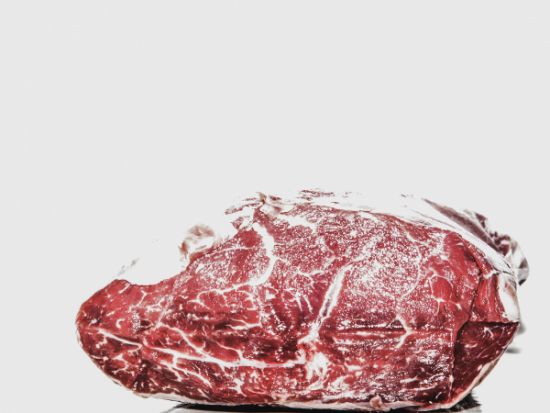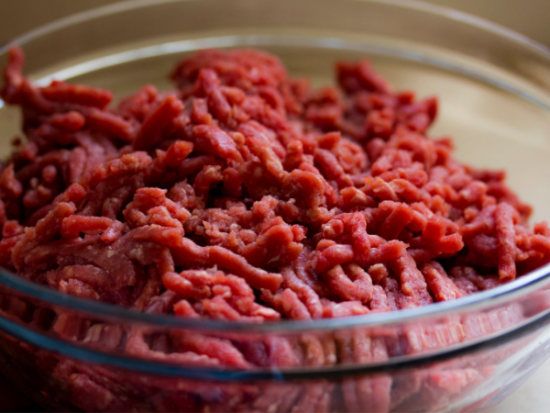Is eating red meat bad for your health?
Eating red meat every day may sound like a dream come true if you love steaks and juicy cheeseburgers. Meat is classified as red when they come from mammals, with its color ranging from a pinkish-red to a deep, bloody shade if it is raw. Of course, the color changes when cooked, but even then, they are called red meats.
There have been many debates regarding the benefits and risks of eating red meat. Early hunter-gatherers learned how to stalk animals for their meat over two million years ago. However, some experts believe eating too much red meat can cause more harm than good.
Given its long history with humankind’s diet, it is probably best to know both the pros and cons of eating red meat every day before making any changes in your current intake. Below are some of the frequently asked questions about red meat and its health effects.
Is Eating Red Meat Bad For Your Health?

While you most likely will not feel the effects after eating one large helping of ribeye, research from the Harvard School of Public Health has shown that regularly eating red and processed meat can increase the risk of many health complications. These include cardiovascular diseases, certain types of cancers, type 2 diabetes, and colorectal cancer.
It is not precisely correct to say that eating red meat is bad for your health. Medical experts agree that there are benefits to it, including iron, protein, and an abundance of vitamin B12. However, the cons may outweigh all of these, as red meat also has high cholesterol, saturated fats, and sodium. The key is to lessen your portions if eradicating it is impossible.
What Is Classified As Red Meats?
Generally, all meat that comes from mammals is considered red meat. If you want to get technical, some only consider the edible ones as belonging to this classification. People have been eating it for so long that a human’s digestive system has evolved to digest almost all types of red meat properly.
However, the meat that is produced and consumed today is far too different than the meat the hunter-gatherers ate in the past. For one, the diet of animals has drastically changed, and so has the quality of their flesh that you end up consuming. Before, they ate fresh grass and insects, but now they are mostly bred and fed grains in cattle houses.
There are also four main classifications: Processed meat, conventional, red meat, white meat, and grass-fed, organic meat. Processed meats are those that go through various processes, such as sausages and bacon. Lamb, beef, pork, and others are red meat. White meat is chicken, turkey, and other poultry. Organic meat comes from naturally-fed animals.
What Does Eating Red Meat Do to The Body?
The effects of red meat on the body have been well-studied. However, it is important to note that most of the research available is observational studies. They come out with results that detect association but not always causation. In simpler terms, eating red meat every day may increase health risks but does not directly cause it.
A helping of red meat every once in a while, say twice or thrice in a week, could even prove to be beneficial. It can be a good source of protein, which helps many either lose weight or gain weight. Some experts agree that unprocessed meat, such as grass-fed beef, is better than the processed kind like hotdogs, but both still pose health risks when eaten frequently.
Is It Considered Bad For Your Health?
Much like any other food, too much or too little is usually not a good thing. Balance is essential when it comes to nutrition and sustaining the body. The World Cancer Research Fund encourages people to limit their red meat intake. Consider eating in moderation, and it could decrease the risk of heart diseases linked to having high cholesterol and saturated fats.
Heart disease and cancer are two of the most associated diseases to eating large amounts of red meat every day. Though there is no evidence that it directly causes it, the association is high in percentage. Certainly enough to alarm doctors and nutritionists and make them warn their patients, especially those who are already vulnerable in health.
How Often Should You Eat Red Meat?
One medical doctor suggests that if you cannot cut out meat from your diet entirely, try to place it in a different portion of your meal. For example, instead of having steak as the main course, you could lessen its portion by adding a bit of shredded meat on top of your salad or side dish. This way, you can still get your fill but with less amount of sodium and fat.
The recommended portion is around 6- to 8-ounce portions, once or twice per week. Accompany your meat products with a load of fruits and vegetables to balance the meal. The cut of meat is also important; opt for lean cuts that say “round,” “loin,” or “sirloin” as they are usually hormone-free and organic.
Good Substitutes
Saturated fats are considered bad fats because they raise the body’s LDL cholesterol. Too much of this bad cholesterol can cause buildup in the arteries of your blood vessels and heart, thus, causing heart attacks and other related diseases. Unfortunately, red meats are packed with saturated fats.
The good thing is that not all fats are bad. The unsaturated fat present in chicken and fish is a good substitute for the healthy cholesterol that the body needs to function well. Omega-3 fatty acids found in salmon and tuna are quite beneficial as they reduce the risk of coronary diseases. You can also opt for vegetables and leafy greens that are rich in the same protein.
Healthy Eating Habits to Start
If you are used to eating meat almost every day, it may be next to impossible to change your diet. It is not advisable to make drastic changes either, as the body can have adverse reactions to being suddenly deprived of what it is used to having. However, easing off of the red meat is possible. Try to lessen your portions first or alternate them with white meat.
You can also try to schedule meals that will have meat and those that won’t. If you are unsure about lessening or eradicating meat from your diet because of certain health concerns, ask for your physician’s advice.
Summary
While eating red meat every day is not recommended by health experts, this doesn’t mean you have to ditch the t-bone on Fridays completely. There are also health benefits to indulging in the food as well as risks. As much as possible, opt for the organic and unprocessed option. Though they could cost a bit more, they are the healthier option, not to mention more fresh.
Don’t forget to cook your red meats properly as well. You can try many recipes online that will help you make a balanced yet delicious meal that is loaded with essential healthy fats, vitamins, and minerals.







